#CAADPPP2023 – AUDA – NEPAD calls for enhanced trade & healthier diets in Africa
There is urgent need for heightened collaboration among governments, regional bodies, and private sectors to revolutionize trade and ensure healthier diets for our citizens in Africa
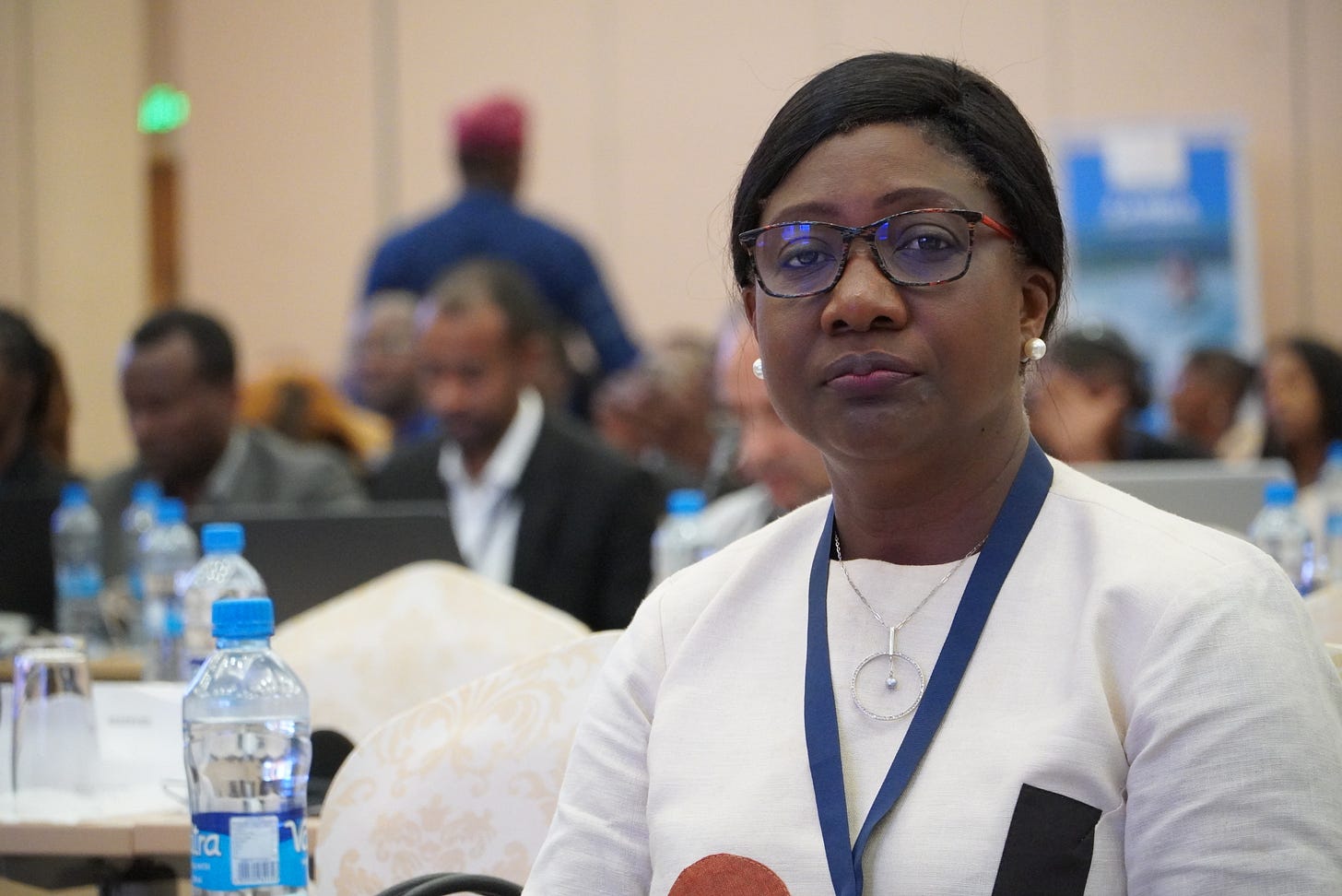
LUSAKA, Zambia (Planet Defence) – The African Union Development Agency – NEPAD (AUDA-NEPAD) has expressed concern that while 65 percent of the total workforce on the Africa continent is in the agriculture sector, the intra – African exports in terms of produce still stand at staggering low level of 25 percent writes Agenda 2063 Media Network East Africa Coordinator, Judith Akolo.
Speaking when she represented AUDA – NEPAD Chief Executive Officer, Nardos Bekele – Thomas, at the 14th Africa Day for Food and Nutrition Security (ADFNS) and the 19th edition of the Comprehensive Africa Agriculture Development Programme (CAADP) Partnership Platform (PP) and the Malabo Policy Learning Event (MAPLE).
Estherine Lisinge – Fotabong called for heightened collaboration among governments, regional bodies, and private sectors to “revolutionize trade and ensure healthier diets for our citizens,” she told the audience that filled the Kenneth Kaunda Wing at Mulungushi International Conference Centre. She urged for collective commitment to the vision of a prosperous, integrated, and food-secure Africa.
“Although agriculture remains a mainstay for the majority of Africa's workforce, its growth is yet to match the ambitions of eradicating hunger and malnutrition,” says the AUDA-NEPAD, Director of Agriculture, Food Security and Environmental Sustainability, Lisinge – Fotabong.
According to Fotabong the Africa Day for Food Nutrition Security (ADFNS) serves as a beacon, “that keeps urging the continent to address nutrition as a development imperative,” Lisinge-Fotabong said adding, “notable focus should be on critical periods such as the first 1,000 days from conception, which heavily influences life-long well-being of the population as part of growth and development.”
She noted that AUDA-NEPAD's Home – Grown School Feeding (HGSF) initiative is a testament to the profound impact of a well-structured program that links school feeding to agricultural development, “fulfilling multiple objectives, from bolstering local agriculture to enhancing school attendance and retention.”
The events held under the theme, “Accelerating the implementation of the African Continental Free Trade Area Agreement in the context of CAADP Commitments for Safer and Healthier Diets,” she said, echoes the evolving needs and aspirations of our continent.
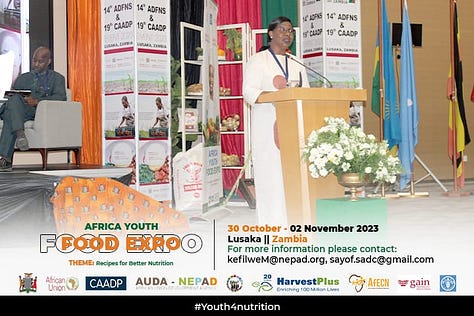
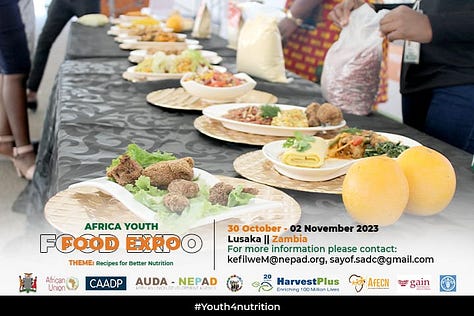
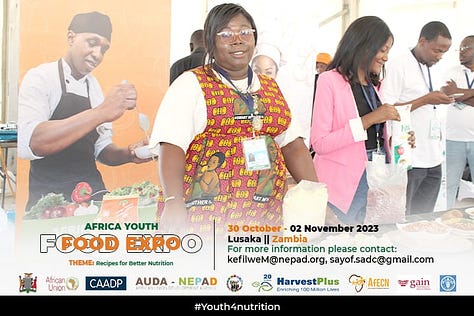
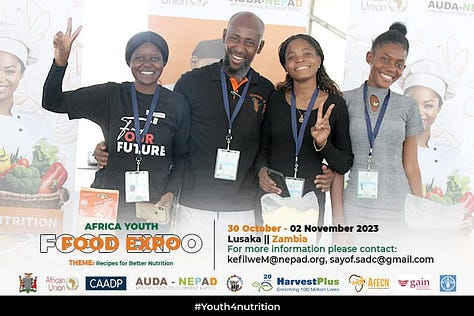
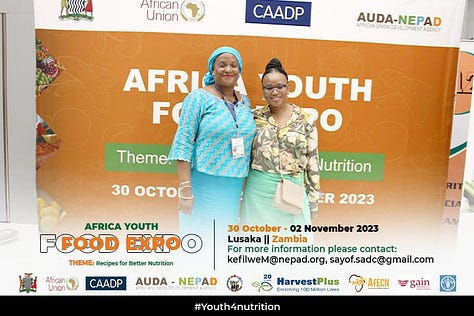
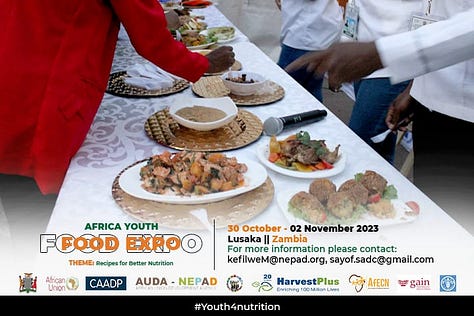
“This convergence underscores the importance of economic growth, intra-African trade, and access to nutritious food in the framework of global trade and agriculture,” said Lisinge – Fotabong.
The Africa Continental Free Trade Area (AfCFTA), she added, offers a historic prospect for Africa to bolster its economies, enhancing trade and development, while leveraging on the Comprehensive Africa Agriculture Development Program (CAADP) framework, which envisions hunger and food insecurity eradication.
She expressed concern that despite the vast resources on the African continent, Africa still grapples with the triple burden of malnutrition, “affecting our present and future generations,” she said and called for a conducive political environment, that ensures cross-sectoral alignment in policies related to nutrition, and delivering targeted nutrition interventions effectively.
The changing consumption patterns, mainly due to the emergence of a growing middle class, poses new challenges and opportunities, Lisinge – the Fotabong calls for enhancing of capacities and learning from both the successes and failures while promoting regional integration for economic growth, improved trade and an integrated continent.
“Our focus should not waver from the primary goal of ensuring that every African has access to safe and nutritious food by harnessing the potential of the AfCFTA and CAADP, and grounding our actions in nutrition-sensitive strategies,” she noted.
In his reaction Francis Zotor, Professor of Public Health Nutrition at the University of Health and Allied Sciences in Ghana observed it was important to come to this continental meeting that combined issues of nutrition and agriculture under one roof.
The reason is Africa is rich and it is not poor, it is endowed with a lot of resources.
Zotor questioned how to end hunger how to reduce poverty.
“Can we go back to eat the indigenous food that we grow. Let’s be eating this indigenous food bring in technology to improve agriculture. African problems can only be solved by Africans.” Said Zotor.
He praised the idea of bringing parliamentarians and the youth to work together to find solutions for solving African problems.


